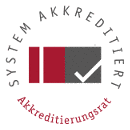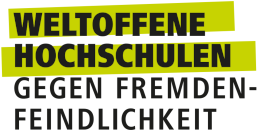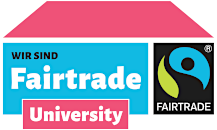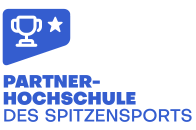Stuart Amor
Biographical Note
- Stuart Amor was born in Cheltenham, attended schools in what is now Greater Manchester and studied Modern Languages at Gonville and Caius College, Cambridge. He received his doctorate from the Department of Education at the University of Lüneburg.
- From 1967–68 he worked as an assistant teacher in Vienna and as editorial assistant of the Internationales Institut für Jugendliteratur und Leseforschung. In 1969–1970 he received a scholarship from the Union of Czechoslovak Writers and also worked with Albatros, the state publishing house for children’s books. He was a member and publications editor of the International Research Society for Children’s Literature.
- In Stuttgart he worked as an editor and project manager on a large number of EFL projects (English as a first and second foreign language, English for grammar schools, Realschulen and Hauptschulen). He is the author of English-language teaching materials, articles on language education and essays on children’s literature.

Bibliography
1. Publications on Language Education
- Projekte im Fremdsprachenunterricht. Der fremdsprachliche Unterricht Englisch. Velber Friedrich Verlag, (Heft 33: Poetry), Mai 1998.
- Authenticity in the Language Classroom. Der fremdsprachliche Unterricht Englisch. Velber: Friedrich Verlag, (Heft 41: Authentisches im Unterricht), September 1999.
- A Project on Photography: The Dynamics of Authenticity. Der fremdsprachliche Unterricht Englisch. Velber: Friedrich Verlag, (Heft 41: Authentisches im Unterricht), September 1999.
- New worlds, new words! Der fremdsprachliche Unterricht Englisch. Velber: Friedrich Verlag, (Heft 51: Dictionary Skills), Mai 2001.
- Authenticity and Authentication in Language Learning. Distinctions, Orientations, Implications. Frankfurt am Main: Peter Lang European University Studies, Series XI Education, 2002.
2. Essays on Children’s Literature
- The Scholarly Approach to Children’s Literature. Postilla Bohemica. Bremen: Verlag K Presse, 1973.
- Folk Tales for Children in the Soviet Union. Signal. 16/1975.
- Notes on Byelorussian Children’s Literature. Bookbird. Vienna: International Research Society for Children’s Literature, 1975, Vols 3 & 4.
- Josef Lada, Illustrator. Signal. 21/1976.
- Rumcajs: A Modern Fairy-Tale Hero. Signal. 21/1978.
- International Exchange? Signal. 29/1979.
- A Functional Approach to Illustrations in Children’s Books. Responses to Children’s Literature. New York: K.G. Saur, 1980.
3. Translations of Books (Czech–English)
- Bezdekova, Zdenka. They Called Me Leni. New York: Bobbs-Merrill, 1973
- Heran, Ivan. Animal Coloration. London: Hamlyn, 1976.
- Lukesova, Milena. Julian in the Autumn Woods. Holt Rinehart and Winston, 1977.
- Lukesova, Milena. The Little Girl and the Rain. Holt Rinehart and Winston, 1977.
- Klobouk, Jiri. Jazz II (Parents). Ottawa: published privately, 1979.
4. Teaching Materials published by Ernst Klett Verlag, Stuttgart (1977–97)
As author:
- The Mail Train Job (Lektüre)
- Moorgate Mystery (Lektüre)
- ETA 4 (Textaufgaben)
- Compact Course 4, Workbook
As co-author:
- Green Line 2 Schülerbuch
- Green Line 2 Workbook
- Green Line 3 Schülerbuch
- Red Line 2 Schülerbuch
- Red Line 2 Workbook
- Green Line Bayern 2 Schülerbuch
- Green Line Bayern 2 Workbook
- Green Line Bayern 3 Schülerbuch
- Let’s go 4 Zusatzmaterialien für Klasse 8 BaWü
- Training Englisch: Englischer Aufbauwortschatz
Doctoral Thesis
- Amor, Stuart. Authenticity and Authentication in Language Learning: Distinctions, Orientations, Implications. Frankfurt am Main: Peter Lang European University Studies, Series XI Education, 2002.
- Abstract: The purpose of this study is to examine authenticity and related concepts in the field of language learning, to explore the significance of authenticity in various interrelated contexts that affect the process of foreign language learning and to look at the way texts and other materials can be authenticated in the classroom. It describes the implications for coursebook design, teachers and learners, and for language education. The notions of genuineness, authenticity and authentication are key concepts in the debate on education. A close study of the three concepts will clarify both theoretical and practical questions. Also, an awareness of these distinctions will make a practical difference to the everyday process of teaching and learning a language.
- Contents: Introduction: Purpose and scope of the study. Assumptions and methodology. Key concepts.
A Fundamentals
1 Language, Text and Context: The nature of language, Text and context, Genre and social interaction. 2 The Larger Context: A culture of (in)authenticity? Artificial and virtual worlds. The ethics of personal authenticity.
B Definitions and Distinctions
3 Proficient Users and Language Corpora: Native speakers and proficient users. Which English? Whose English? The significance of language corpora. Creating language corpora. 4 Genuineness: Genuineness and authenticity contrasted. Attitudes to genuineness and authenticity. Selecting, grading and modifying texts. 5 Genuine and Non-genuine Texts: Comparing genuine and scripted dialogues. Distinctive features of genuine texts. Distinctive features of non-genuine texts 6 Authenticity and Authentication: Various aspects and approaches. Authenticity of interaction and classroom events. Authenticity of personal engagement. Authenticity and authentication. Relevance and meaning(fulness) 7 Authentic Tasks and Activities: Authentic learning. Authentic London. Looking at technology and technologies. A fashion project. The Storyline model. Angels in the Outfield. A country project (Canada). Non-ELT simulations and drama techniques. 8 Authenticity and Motivation: The human mind and learning. Authenticity and motivation. Authenticity and intrinsic motivation. Motivation for language learning. 9 Integral Language Orientations: Contingency. Contradiction. Conversation. Identity. Intertextuality. Multilingualism. Openness. Totality of experience.
C Practical Applications
10 Spoken Language: Introduction. Service encounters. Calls for emergency services. Storytelling. Interlingual discourse. Conclusions. 11 Written Language: Introduction. Getting to know Islington. The language of advertising. Detective stories as a genre. Selecting and working with texts. 12 Visual Language: A photography project: the dynamics of authenticity. Ten focuses of attention. Breaking the ice. Ten topics. Project questionnaire. One teacher’s report. D Implications 13 Issues and Conclusions: The world of young learners. Changes in teaching/learning resources. IT, cognition and education. The implications of language change. Final reflections. Appendix: Bibliography. Illustrations.






